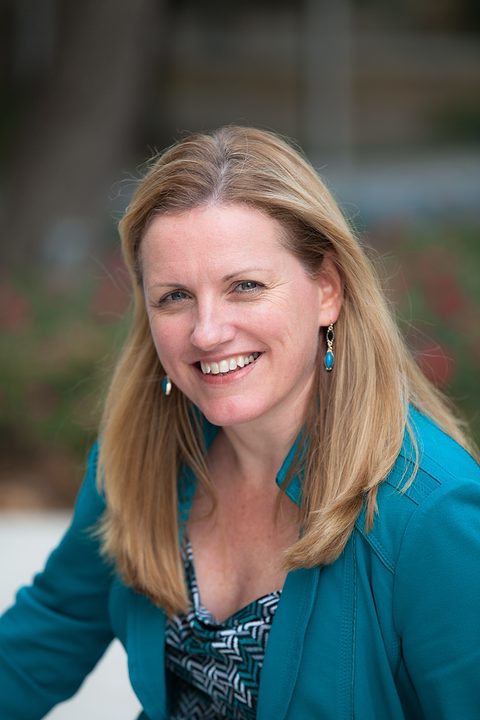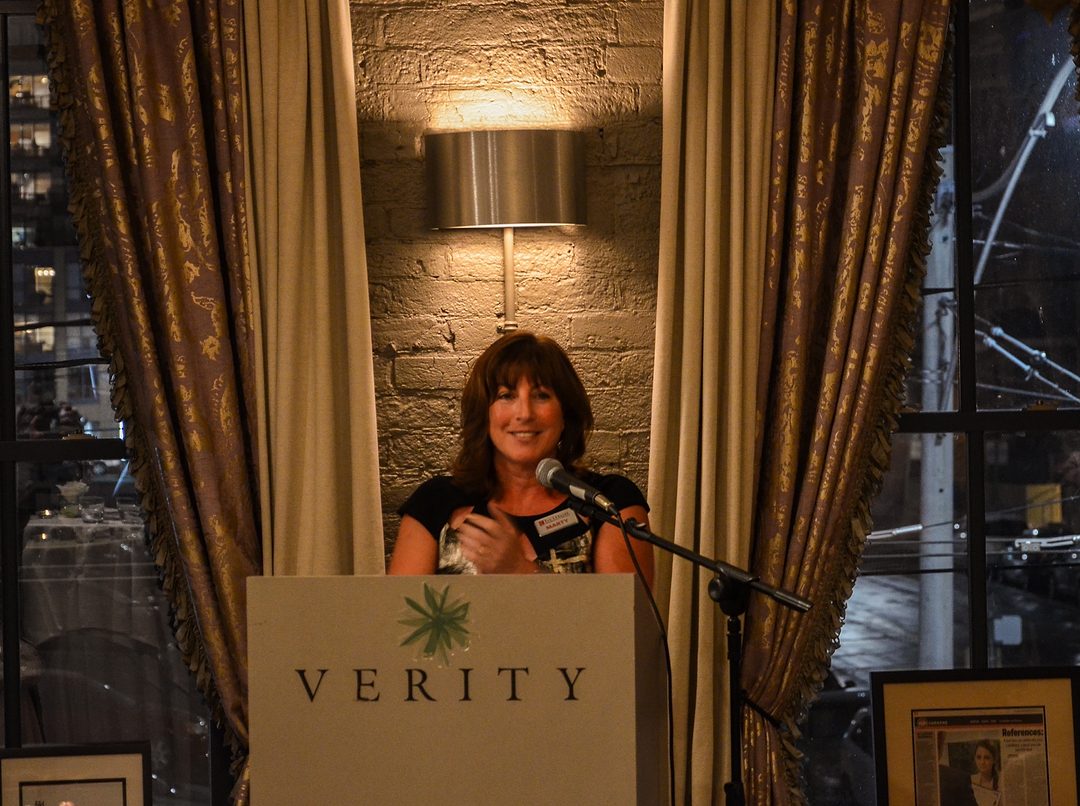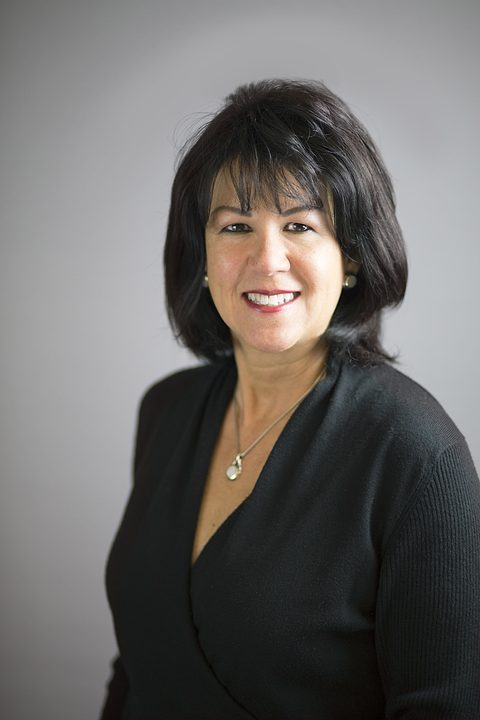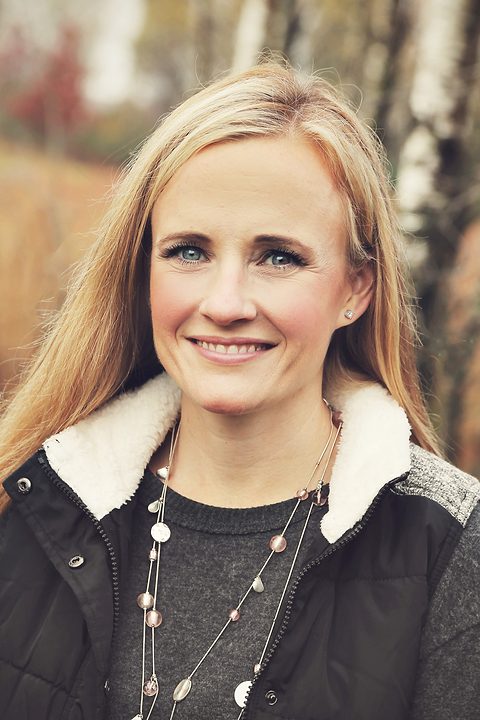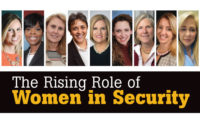Women have made inroads into the top leadership positions in corporate America. Today, 26 women are serving as CEOs of Fortune 500 companies (5.2%), and 5.4% are serving as CEOs of Fortune 1000 companies.
Even more, a majority of American women are in the labor force. In 1965, 39% of women ages 16 and older were in the labor force, according to a recent Pew Research report. That share rose steadily and peaked at 60% in 1999. As of November 2015, 57% of women were in the labor force, only 12 percentage points lower than the share for men (69%). Women account for about half of the U.S. labor force (47% in November 2015).
And women have made strides in terms of positioning themselves to move into the leadership pipeline. In 2015, said the Pew study, more than half of managerial and professional occupations (52.2%) were held by women, up from 30.6% in 1968.
Even more, says research from Catalyst, a nonprofit organization whose mission is to accelerate progress for women through workplace inclusion, females in leadership positions in many industries can lead to higher profits. The report, The Bottom Line, found that companies that had more women on boards had better financial results than those who had fewer. Specifically, it found that companies with the most women board directors had 16% higher Return on Sales than those with the least, and 26% higher Return on Invested Capital. The report also noted that companies with fewer women on boards had more governance-related controversies than average.
It is difficult to pinpoint the exact performance bump a female presence can lend a company, but overall, the Catalyst research emphasized that having a woman in an executive position leads to better performance, with the more women the better.
While statistics do not currently exist on the number of female senior executives versus their male counterparts in the background screening industry, our sample suggest that women in this industry are holding their own and climbing the corporate ladder better than many other industries.
It is also noteworthy that of the 16 Chairs to lead the National Association for Professional Background Screeners (NAPBS), the association that serves as ‘the voice of the background screening industry and represents professional background screener, seven have been women.
Clare Hart, CEO of Sterling Talent Solutions, is one example of a successful CEO whose leadership is behind the company’s number one position in the background check industry. She didn’t exactly plan a career in the background industry, but is working to advocate for more female executives in the industry. Her foray into the industry was a bit accidental; she was contacted by a recruiter for the CEO role at Sterling Talent Solutions, and was immediately interested, partly due to Sterling’s number one position in the market. In addition, she says, “Background screening is a must-have service. Also, being that the industry is global, there are many growth opportunities.”
Another reason that Hart was attracted to the industry and still enjoys her role, she says, is her technical background. “I started as an applications programmer, and I realize that every industry today is very dependent upon technology. So, my experience with technology and product development has helped me in my career and has helped Sterling. We differentiate ourselves through the use of technologies. Our business, just like every business, is dependent on technology. Another advantage that we have over the competition is a good mix of people with very detailed experience in this industry and in other industries.”
Daphne Large, CEO of DataFacts, was employed with Equifax Services for 10 years in a Regional Operations Center, where she says, “We had boot strapped a background screening sales initiative into our region to help grow our revenue, and I was responsible for that both from a sales and operations perspective. So when I started Data Facts in 1989, it was natural, and it made sense that in time, we would begin to offer these services, which we did in 1992.”
Large has invested in personnel, and today, credits her team to the company’s success.“I attribute our success to our foundational believe that if we take care of our people, they will take care of our customers, who in turn take care of Data Facts,” she explains. “This model has never let us down.”
Cinkle is CEO of Candid Research, but previously, she owned a large staffing company for 25 years (1989-2014). By 2008, she had become so frustrated waiting for background checks that she decided to just do them on her own.“I hired someone from the background industry to show me the ins and outs of obtaining court records. I began troubleshooting the bottlenecks in each county. Soon we were experiencing same-day results. In 2014, I sold my staffing company to a large competitor, which allowed me to focus on Candid Research.”
Much like Hart, Large, and Cinkle, there are other female executives who didn’t plan on a career in the background check industry, including Melissa Sorenson, Executive Director for the National Association for Professional Background Screeners; Marty Britton, CEO of Britton Management; Traci Ivester, President of Clearstar; Kristin Stafford, CEO/Managing Partner of Vital4 Data; Noelle Harling, Vice President of Frasco Profiles; Christine Cunneen, CEO of HireImage; Elizabeth Fitzell, CEO of RISQ GROUP; Nitza Lamas, VP International of SJV & Associates; Julie Hakman, CEO of American Checked; Theresa Preg, Senior Director - Product Management-Business Development of First Advantage; and Heidi Pattie, Vice President of Convergence Research.
Similar to Hart, Hakman was also recruited by one of the Big 3 screening companies in the late 1990s to launch a new division. “It was all about timing, sort of the perfect storm,” she says. “Negligent hiring suits had caught the attention of the HR community encouraging them to start screening employees, technology had advanced to introduce the internet to B2B services, margins were high and the industry was exploding, and I got a trial run at being an entrepreneur while being backed by a company with deep pockets. Several years later in 2004, I knew it was time to put my money where my mouth was and branch out on my own. I reached out to two of the top industry leaders and asked if they were interested in starting a screening company that could compete on a national level while embracing the values of family, community and people. They took a leap of faith, committed 100% and believed in building a dream.”
For others, getting into the industry was more of a happy accident. Sorenson saw an advertisement for a compliance officer position at a mid-sized consumer reporting agency, Britton studied civil engineering and worked as a Project Manager for an engineering consulting firm for 15 years, Traci Ivester had a criminal justice degree and worked for a parole office working as a background investigator.
According to Preg, “After moving to a new city in the early 1990s, I found myself assisting a company with a background screening need. I’d not been in the industry at that time, but I was fascinated by the subject matter and everything that was involved with conducting a background check and found a lot of consequential value in the outcome of screening services. The more I dug into and networked around, the more my career blossomed!”
Harling says, “I was doing workplace investigations, and part of the process was often a background check on the subject of our investigation. When we shared the background results with the employer, we often heard, ‘If only I’d known before we hired him.’ Pre-employment background checks were a relatively new concept, and I was intrigued by the idea of starting a new business line that would help our clients through the entire employee life cycle.”
And Cunneen of HireImage is a CPA who wrote a business plan on employment screening for a Master’s program and realized the great potential in the industry, she says. “We started the background screening company, specializing in employment screening, in 2005 and have grown every year since.”
While the background industry has been largely dominated by male executives, increasingly female executives are choosing the profession, in addition to being recruited. Hart says, “One third of the professionals on our executive committee are women, and I’m proud of that. They have all been in the industry for a long time, they are smart women who have been able to advance their careers. In addition, at Sterling, we have several examples of allowing work at home situations. We are about results, and we are not obsessed with a physical presence in an office. As we are metrics driven it’s easy to see if someone is producing or not. We are also very consistent with pay, and women are compensated the same as men, and are given opportunities for advancement.”
Ivester adds,“I think most of us realize the importance of providing employers with the information they need to make informed hiring decisions. Women are generally more nurturing and compassionate than men, and these traits are of particular use in the screening industry. It’s not softness, but a way of working with organizations and applicants to explain the depths of screening, including both the positive and negative impacts. I feel proper education is one of the biggest gaps in the background screening industry. Women are helping to bridge this gap by educating background screening companies, employers, and the industry as a whole about how to interpret and use the information gleaned from a background check as well as how to help the applicant be knowledgeable about their own data. Women have become more confident and ambitious, and they simply don’t accept being told they can’t be as successful in business as their male counterparts. The background screening industry embraces this, and I believe the number of women in leadership roles will continue to expand.”
Stafford notes that “Women are successful in all industries and the background screening industry is no different. Women are born gifted with the ability to successfully manage extremely intricate processes, and background screening certainly provides challenges due to the many moving parts involved. Success in this industry requires dedication, stamina, interpersonal skills, methodical thinking, patience and motivation and most of these skills come naturally to most women.”
Harling notes that as the industry is relatively new, with an extremely accelerated growth rate, there has been a huge vacuum for talent, and women have been poised to take advantage of the opportunities. “The other aspect that plays into it, at least for me, is that despite the media perception, our job really is to help people – and that seems to be a role women gravitate to more than men,” she says. “Whether it’s helping clients or consumers, if we are doing that part of our job well, it feels really good.”
“There are many successful women in the background industry, but I believe there should be many more,” Lamas notes. “This industry has an impact on people’s lives, forges safe working environments, and has an overall positive impact in the community. The industry comprises many great and forward-thinking companies, such as my current employer, SJV, where women have the opportunity to grow and develop professionally. The most successful women I know in this industry have a wide breadth of knowledge, in addition to specific understanding of certain focus areas.”
Success and Advice
Every woman has her own definition of success. But there are certain traits that most successful women share. What advice would these executives give to young women who want to make it to the C-suite or run their own company?
Hart of Sterling attributes hard work as a part of her success. “Anyone who has made it doesn’t work 9-5, they do networking, associations, or professional development,” she says. “Second, is a commitment to lifelong learning. And the third is your attitude: one that is positive, optimistic, with the understanding that there will be down days and that only you control your attitude.”
“I work hard, I can’t make it simpler than that,” says Pattie. “I’m the first one in and the last one out. If something fails regardless of who was behind the wheel, I take the responsibility and I believe in sharing the success. I try to earn the respect of my associates and I truly believe that is done through example. I think the best way to manage is to find talented people, point them in a direction and get out of their way. This all comes back to none of this is achieved by one person. I’m the person standing in front but there are 30 people directly behind me. Part of the problem with human nature and success is a tendency to think we earned it. We all might work hard but none of that matters if you’re not in the right place at the right time and more importantly, know it.”
For Sorenson, success is a natural byproduct of passion and hard work, as well. “I truly love my work and appreciate the important role background screening plays in keeping our communities safe,” she says. Britton attributes a strong supporting cast that is always willing to go above and beyond. In addition, Britton advocates surrounding yourself with like-minded people who make you accountable. “Having a peer to peer advisory board, such as Grow Your Biz, Women’s President Organization or The Alternative Board is very important,” she notes.
For Hakman, “At the end of the day, it is truly about people, and I truly believe that. People work with and do business with people they like and trust. I am inspired each and every day by the people I work with and the clients we serve. Second, I believe in persistence and determination. I may not be the sharpest tool in the shed, but if I commit to something or someone…there is no going back, no quitting, no saying no! Last, it’s about passion, which is powerful, and is the fuel that keeps you going when the odds are against you. It’s the grit you need when others throw in the towel, it’s the high you get when a goal is met and most importantly, it’s the third leg of the triangle, which is balance. It’s passion that keeps everything else in balance.” Also, she says, “If someone tells you no, don’t give up. Step back, rethink, retool or reengineer your message. Reconsider, rework your delivery. Adjust or change your audience. Repeat as necessary until success.”
Large quotes a Forbes article that says “Entrepreneurs are the real money multipliers.” “This is an exciting part of being an entrepreneur, taking an idea and turning it into something,” she explains. “You need both leadership and management skills. You’ve got to know when to lead, when to follow and when to get out of the way. And if you take care of your people, they will take care of your customers, who in turn, will take care of your business. Your people by far are your greatest asset. You have to be humble, hungry and people- smart and seek out those virtues in those you hire. Along with a diverse skill set (not just being good at your idea or skill), you must be determined, tenacious, willing to put in long hours and have a thick skin. Be flexible, a quick study, innovative and most certainly, a risk taker,” she suggests.
For Ivester, it’s about “Character, dedication, drive, work ethic, and working for an amazing organization with a talented group of people. I constantly push myself to step outside my comfort zone, to learn, and to improve. I surround myself with like-minded individuals that have drive and passion, that strive for more while doing the right thing. I endeavor to learn from experiences at previous companies by paying attention to what worked and what did not in regard to the overall health of these organizations. I have been a part of large initiatives that failed horribly, but the knowledge gained was still an opportunity to grow. Overall, I’ve invested a lot of hard work and time into my career, resulting in my success.”
In addition, says Ivester, it’s important to learn your greatest strengths and use them to your advantage, and to acknowledge your weaknesses and work on them. “Also, find a mentor – choose someone you view as successful and let them be a guide to you, whether by observing and learning or by openly asking them for advice.”
“For me, the biggest factor has been a desire to learn, and a no-fear approach to asking for help,” Harling explains. “Joining NAPBS as a founding member, and volunteering to chair the Ethics & Accreditation Committee catapulted me into an arena where I was instantly working with the industry’s smartest and most experienced executives, attorneys and influencers, and I just soaked it all up. Those early years in NAPBS truly shaped me into the executive and leader I am today.”
The leader that Harling is today also includes treating everyone, including competitors, with respect. “There is more than enough work to go around and you never know where people will end up down the road,” she says. That also rings true with Lamas, who says: “I believe every young women must define their core values early on in their career. Understand what they stand for and what is important to them. These values will keep them honest and true to themselves and will be their differentiator among peers. There will be many occasions where they will be surrounded by individuals with different values or none at all, and it is at these moments when your core values will help you define your vision and make the right decisions.”
Joining a trade association can offer many advantages, including education and training, lobbying, and networking opportunities, says Cunneen, who joined NAPBS and became heavily involved in volunteer work with the association. “It allowed me to meet great industry leaders who were willing to share their experiences and wisdom of the industry. I also joined small business and entrepreneur groups, to learn from other businesses on best practices and to realize I wasn’t alone. The challenges I faced were similar to the challenges faced by many small business owners.”
Harling also suggests having a personal “brain trust – people who will answer any question you throw at them.” I have five people in my brain trust that I’ve known for years,” she explains. “They are my go-to for everything from a complex legal interpretation, to a recommendation for a great restaurant for a special client dinner. They’re also a lot of fun and help keep things in perspective when life gets a bit overwhelming.”
One thing that Stafford advocates is to develop a professionally written business plan that anyone could read and understand the value proposition and potential for success regarding a business. “Circulate the business plan and financials to trusted associates, mentors and colleagues to receive feedback on the message your business plan portrays and adjust as applicable to perfect your plan,” she says. “Develop a strong and detailed operating plan that represents the ideals you want in place to run the business day-to-day, then have an attorney review and legally approve the plan. Set your expectations for success with realistic goals, timelines and ensure you understand that building a successful business from start-up is extremely challenging and time consuming; your commitment must be resilient no matter the obstacle you are faced with. According to Forbes.com in January of 2015, 90% of start-ups fail.”
Cunneen echoes that sentiment: “The passion you have for your business is great, but don’t forget to know your numbers. I see many small business owners who fear the financials. The only way you will be successful is if you have a profitable business.”
“There is a Steve Jobs quote about ‘The Crazy Ones’, which basically goes along with everything you see in the world, the person who came up with that, was called crazy,” shares Pattie. “From something as complicated as landing on the moon to the first guy who decided to eat a cow, somebody told them they were nuts. Twenty years ago, the idea of electric cars was insane and self-driving cars science-fiction and here we are. It doesn’t get done until someone does it. My advice would be make sure it’s what you want because you will make sacrifices you can’t get back so know what your priorities are. You can make a great career in this wonderful industry but if you want to be a shot caller you must live and breathe it.”

